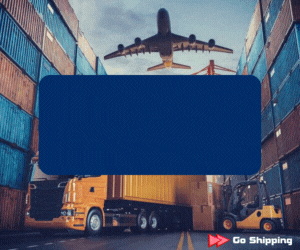The Digital Container Shipping Association (DCSA), a neutral, non-profit group founded by major ocean carriers to digitise and standardise the container shipping industry, published a common set of processes, as well as data and interface standards for Track and Trace (T&T) on 28 January 2020.
DCSA says that the standards can be implemented by carriers, shippers and third parties to enable cross-carrier shipment tracking. This is the first of many initiatives to be put forth by DCSA to transform inefficient practices and accelerate digitalisation through a unified industry effort.
The DCSA T&T standard comprises an information model and interface standards that can be freely downloaded from the DCSA website. The data model ensures track and trace data definitions are consistent for all users, leveraging any system.
These definitions are based on the Industry Blueprint, published by DCSA and its carrier members in 2019, which established a consistent vocabulary and proposed a common set of industry processes. The T&T standards are aligned with the UN/CEFACT (United Nations Centre for Trade Facilitation and Electronic Business) standards to provide a global industry framework that preserves existing investments and streamlines communication among all supply chain participants.
For shippers, this new standard will simplify shipment visibility across multiple carriers, enabling them to better plan and optimise shipment handling activities, for carriers, it will unify T&T information sharing with other parties, ensuring accurate and efficient communication regardless of the underlying technology or platform and for the industry as a whole, the DCSA T&T standard will set a new bar for collaboration that focuses on delivering a great customer experience while improving efficiencies for all stakeholders in the supply chain, according to DCSA.
The DCSA T&T standard publication comprises a set of documents: the DCSA Information Model 1.0, T&T Data Interface 1.0, DCSA-to-UN/CEFACT Data Mapping and associated Reading Guides.
Thomas Bagge, CEO of DCSA, remarked:
“These standards will reduce complexity, cut costs and, over time, better manage end-to-end supply chains. As DCSA standards are technology- and vendor-neutral, every organisation providing shipment tracking information to its customers today will benefit by adopting our T&T standard, because it will simplify data integration with carriers and improve information quality.”
Formed in April 2019, the DCSA membership includes AP Moeller-Maersk, MSC, CMA CGM, Hapag-Lloyd, Evergreen, Ocean Network Express (ONE), Hyundai Merchant Marine (HMM) and Zim.
André Simha, chairman of the DCSA supervisory board and global chief digital and information officer for MSC said:
“Current DCSA ocean carrier membership represents 70% of the global container shipping market, and all carriers are invited to join us in collaborating to develop more efficient, automated digital container shipping. This will ensure global shipping in 2020 and beyond will benefit from digitalisation and the significant value interoperability offers.”







